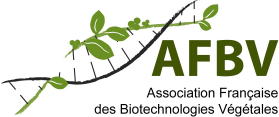On Friday December 22 we understand that the question of the NGT Regulation will be raised again by the Spanish presidency.
The three associations, AFBV (Association Française des Biotechnologies Végétales), EU-SAGE (European Sustainable Agriculture Through Genome Editing) and WGG (Wissenschaftskreis Genomik und Gentechnik), and 200 scientists which we represent have written to the Members of the EU parliament with the request that they vote in favor of the proposed Regulation so that it is adopted by the co-legislators during this current mandate, i.e. not later than May 2024. Any delay in adoption will adversely affect the possibilities for Europe to have a more sustainable agriculture and increased food sovereignty (see the open letter enclosed).
We read that at the previous meeting on December 11, a majority of Member States were in favor of the project, and we hope that this support will be maintained on December 22. Despite this support, a qualified majority was not reached due to votes against or abstentions for different reasons.
We would like to provide you with some information on the issues which, according to what we read, could pose problems:
- If this regulation is not adopted research in Europe will continue, probably at a slow pace, but without any tangible benefit for Europe. Conversely, European research will continue to benefit other international markets where legislation is already in place permitting its use.
- Certain countries are concerned that their agricultural exports derived from NGT-1 plants would be considered GMOs in export markets. Under current amendments being considered by both the AGRI Committee and the ENVI Committee, NGT-1 products would be exempted under the GMO legislation to the same extent as random mutagenesis and therefore the likelihood of such an occurrence happening is very low.
- Intellectual property is an important element of innovation in all fields. In the case of plants, a balance is established between plant breeders’ rights (PBRs) and patents. Improvements can always be made and will be through the study and recommendations to be provided by the Commission in 2026, before the NGT Regulation applies. Amongst such improvements, the breeder’s exemption which has recently been included in the unitary patent can be extended to all Member states permitting use in breeding of varieties which include patented traits.
- Regarding transparency, the Commission’s proposal to establish a public database containing information on NGT-1 plants, as already done in several countries, and to label seed bags allowing farmers to choose, is, for us, quite sufficient. NGT-1 plants and products being similar to plants and products obtained by conventional breeding, any labelling of the end product would be discriminatory compared to conventional products.
We hope that you will be able to reach an agreement on this proposal so Europe can benefit quickly from these products as is already the case in several countries. Please consider that we are responsible for what we do and also for what we choose not to do.
We thank you for your kind consideration,
Georges FREYSSINET
Président
Association Française des Biotechnologies Végétales (AFBV)
Prof. Dr. Klaus-Dieter JANY
Chairman
Association of Genomics and Genetic Engineering e.V.
(WGG)
Prof. Dr. Em. Dirk INZE
Chairman
European Sustainable Agriculture Through Genome Editing (EU-SAGE)
Download: Cover message to the Ambassadors









